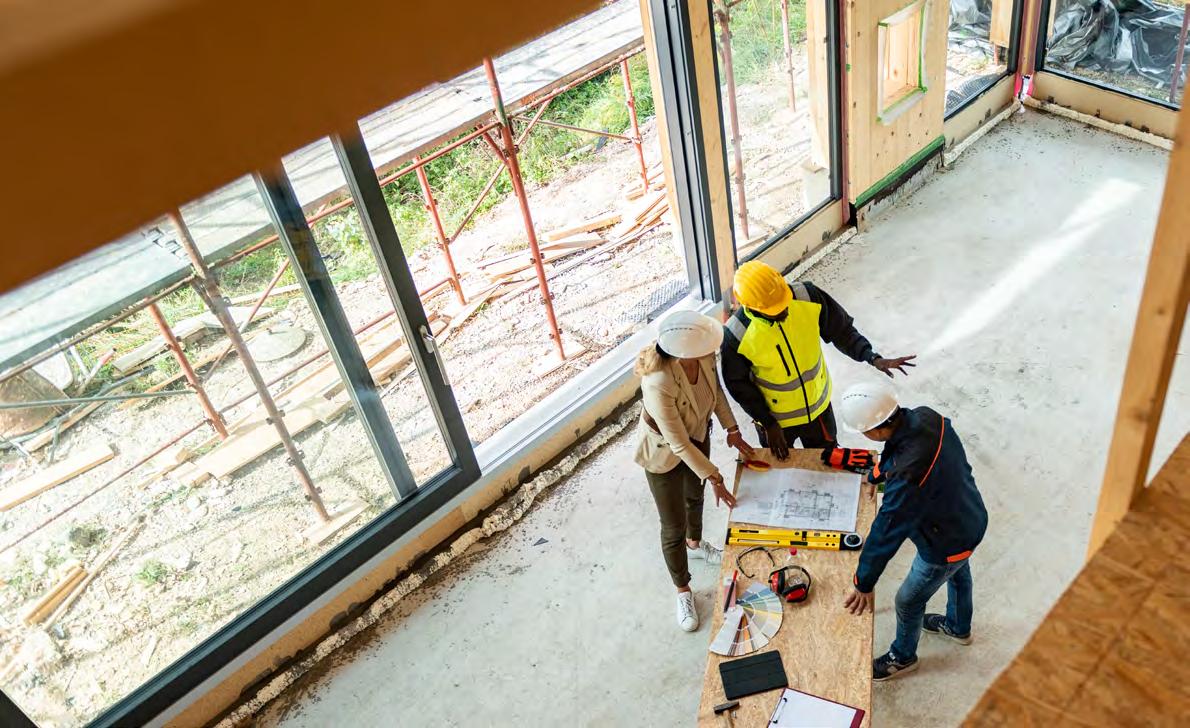
4 minute read
4 manufacturing industry ➔ see
4. MANUFACTURING INDUSTRY
THE CIRCULAR MANUFACTURING INDUSTRY AS A LEVER FOR GREATER PROSPERITY
Material costs at manufacturing companies sometimes amount to 60% of total operating costs. Companies can make significant savings and offer added value thanks to ecodesign and sustainable material use with focus on reusing, repairing, remaking and extending the life of materials. A circular manufacturing industry therefore offers many advantages.
NEW MARKETS AND REVENUES THANKS TO CIRCULAR INCOME MODELS
The manufacturing industry is firmly anchored in Flanders and has a strong link with a well-developed social economy. Renowned knowledge institutions, the extensive logistics network and numerous citizen initiatives focus on circular strategies, a relatively broad network of collection and sorting and an accessible market.
Flanders wants more than half of the manufacturing companies to actively work in a circular manner by 2030. Therefore, circular business models and new forms of cooperation are supported. Circular design is also supported, as are initiatives with which products and textiles can be made, repaired and reused sustainably and qualitatively.
This support also comes from the sector federations, confirms Patrick Van den Bossche, Sustainability Lead at technology federation Agoria. “A recent study by Agoria shows that the manufacturing industry is an essential cornerstone and engine of our economy and prosperity. Circular entrepreneurship is a catalyst for innovation, among other things in product design and business models. New circular income models create many new markets and income. And a circular manufacturing industry offers employment opportunities: new forms of entrepreneurship are emerging and locally anchored jobs will be added, also for disadvantaged groups.”
PATRICK VAN DEN BOSSCHE Sustainability Lead Agoria
LEO VAN DE LOOCK Transition Manager VLAIO

HNST: circular jeans with a message.

THE MOST SUSTAINABLE JEANS IN THE WORLD COME FROM FLANDERS
A great example of the circular manufacturing industry is HNST. This Mechelen-based company has been producing clean jeans since 2018, most of which are made from clean denim sourced from more than six thousand discarded jeans collected from the second-hand shops, recycled cotton, Tencel and organic cotton. The trousers have inside pockets of old T-shirts and the metal buttons are removable, which means they can also be recycled. Painting with indigo — the typical denim colour — is done with electricity, which means that HNST does not dispose of harmful waste materials and uses much less water. Not only with its production does HNST take a clear stance against the throw-away society and fast fashion. The brand also refuses to take part in peak mass consumption days such as Black Friday and follows the same water-saving line in its washing advice. HNST recommends its customers wash their jeans less and even launched a Morning After Spray, which removes bad odours without using water, electricity or chemicals.
Painting the jeans using electricity significantly reduces the impact on the environment. THE GOVERNMENT IS ALSO DOING ITS BIT.
Flanders Innovation and Entrepreneurship (VLAIO) is more than happy to support these initiatives. Companies can count on advice and subsidies when developing sustainable, circular products and processes, says Leo Van de Loock, transition manager at VLAIO. “Flanders has the ambition to reduce the material footprint and greenhouse gas emissions by 2030. The Flemish Government is therefore fully committed to the transition from a linear to a circular economy. We do this, for example, with subsidies, with which we support living labs in the circular economy and life-extending initiatives in the manufacturing industry.”
THE UNIQUE LEGACY OF YOUR ASSOCIATION: A REUSABLE POSITIVE IMPACT
Conferences in the circular economy create a unique kind of legacy. Your association has a reusable positive impact on society. Not only the next generation will reap the benefits of your organisation, but also many generations later.
Flanders attaches great importance to this legacy of your conference. Your social relevance is crucial for our region. That is why we support your association with a unique service, in which the experts at VISITFLANDERS Convention Bureau define and develop the legacy of your conference together with you.
This guidance is carried out according to a specially developed methodology, which consists of four phases:
› FASE 1: what sustainable impact do you want to achieve with your conference? › FASE 2: which parties within government, education, business band residents can help support your conference and your legacy? › FASE 3: how do you tell the story of your conference and the impact you want to create? › FASE 4: what parameters show that your conference achieves its sustainability goals? Together with the experts of VISITFLANDERS Convention Bureau, you define the legacy of your conference.
GEMMEKE DE JONGH
Legacy Expert
gemmeke.dejongh@ meetinflanders.com +32 2 504 03 78






